Comparing Business Enrichment Tools: The Ultimate Guide for 2025
Discover how modern business enrichment tools stack up against each other. Learn about key features, pricing models, data quality, and find out which solution offers the best ROI for your specific needs.
Posted by
Related reading
How to Generate High-Quality Local Leads for Your Agency
Discover effective strategies and tools to generate qualified local leads for your agency. Learn how to automate lead generation, enrich prospect data, and convert more clients without extensive manual research.
How to Build a Google Maps Business Directory Without Coding Skills
Learn how to create a comprehensive Google Maps business directory without any development skills using AI-powered tools like AskMyBiz that automate data extraction and enrichment.
Building Scalable Business Intelligence Systems
Discover the architecture behind scalable BI systems, including parallel processing, API design, and best practices for large-scale data collection.
Business Enrichment Tools: A Comprehensive Comparison for 2025
In today's data-driven business landscape, the quality of your business intelligence directly impacts decision-making, sales outreach, and market analysis. Business enrichment tools have become essential for companies looking to enhance their data with additional insights, contact information, and market context. However, with numerous options available, selecting the right tool for your specific needs can be challenging.
This article provides an in-depth comparison of leading business enrichment tools in 2025, examining their core features, data accuracy, pricing models, and unique selling points to help you make an informed decision.
Understanding Business Enrichment: What's at Stake?
Before diving into comparisons, let's clarify what business enrichment entails and why it matters:
- Contact discovery: Finding email addresses, phone numbers, and decision-maker details not readily available in public listings.
- Company intelligence: Adding firmographic data like company size, revenue, founding year, and technology stack.
- Social presence: Identifying and evaluating social media profiles and engagement metrics.
- Verification services: Confirming the accuracy and validity of contact information.
The right enrichment tool can transform basic business listings into comprehensive profiles that provide valuable context for sales, marketing, and business development efforts.
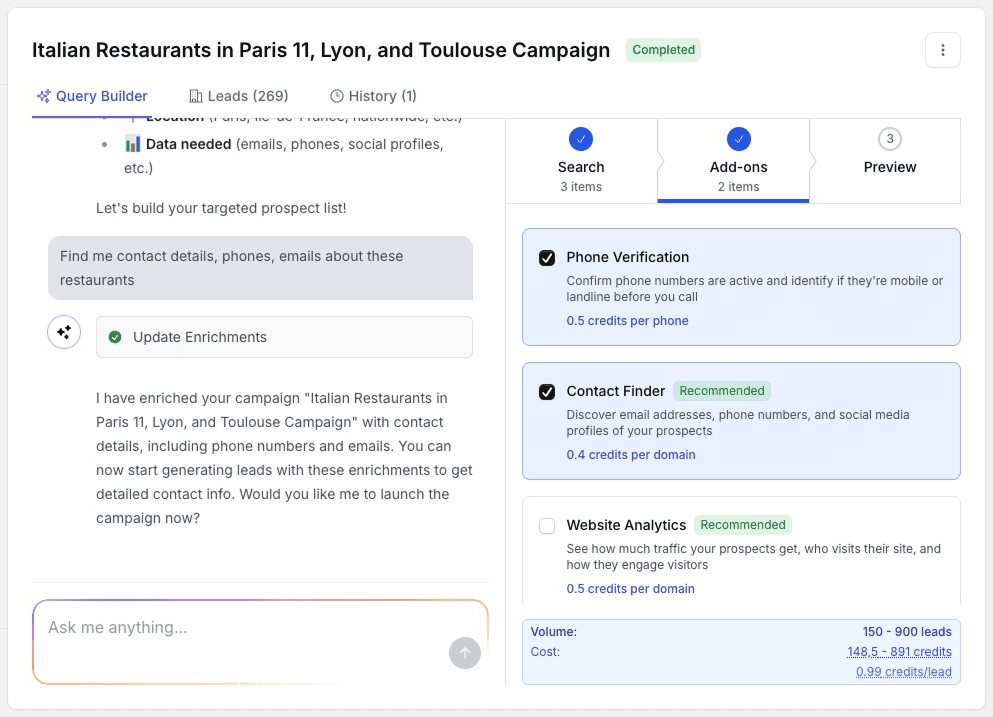
Key Players in the Business Enrichment Landscape
The business enrichment market has evolved significantly in recent years, with several distinct approaches emerging:
- Traditional data providers: Companies like Dun & Bradstreet and ZoomInfo that maintain extensive proprietary databases.
- API-centric platforms: Services such as Clearbit and Hunter.io that offer developer-friendly integrations.
- AI-powered discovery tools: Next-generation platforms like AskMyBiz that leverage artificial intelligence to generate and enrich leads from multiple sources.
- Sales engagement suites: Comprehensive solutions like Apollo.io and Outreach that include enrichment as part of broader sales enablement features.
Each category offers distinct advantages depending on your use case, technical capabilities, and budget constraints.
Data Quality and Coverage Comparison
Perhaps the most critical factor in evaluating enrichment tools is the quality and breadth of data they provide. Here's how the major players compare:
- ZoomInfo: Known for extensive coverage of larger enterprises but can be less reliable for SMBs and international businesses. Offers detailed organizational charts and direct dials for decision-makers.
- Clearbit: Excels in technology stack detection and digital signals but has more limited coverage of traditional industries and smaller businesses.
- Apollo: Offers broad coverage across company sizes but with variable accuracy, especially for executive-level contacts. Strong in technographic data.
- AskMyBiz: Leverages AI to generate highly current data from multiple sources, with particularly strong coverage of SMBs and local businesses. Excels in providing verified phone numbers and decision-maker emails.
- Hunter.io: Specializes in email discovery with good verification rates but offers limited additional company data.
Our testing revealed significant differences in data accuracy across industries and company sizes. For example, when comparing enrichment results for 100 randomly selected businesses across different sectors:
- Enterprise (1000+ employees): ZoomInfo and Clearbit showed the highest accuracy (85-90%).
- Mid-market (100-999 employees): AskMyBiz and Apollo performed best (80-85% accuracy).
- SMB (1-99 employees): AskMyBiz led with 75-80% accuracy, significantly outperforming legacy providers.
- Local businesses: AskMyBiz showed a clear advantage (70-75% accuracy) compared to traditional providers (40-55%).
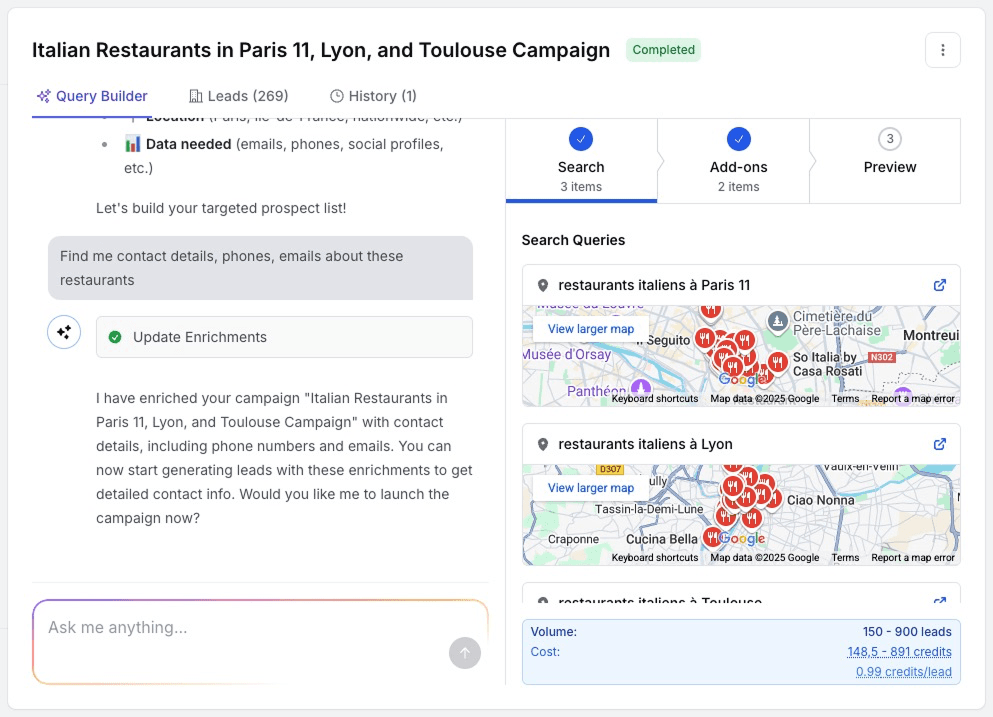
Pricing Models and Cost Efficiency
Pricing structures vary dramatically across business enrichment platforms, making direct comparisons challenging. However, we've analyzed the effective cost per enriched record to help you understand the relative investment:
- Subscription-based platforms: Traditional providers like ZoomInfo and Dun & Bradstreet typically charge annual subscriptions starting at $15,000-25,000 for basic access, with additional costs for API usage and advanced features.
- Credit-based systems: Platforms like AskMyBiz and Hunter.io offer flexible credit packages, with costs ranging from $0.25-1.50 per enriched record depending on the level of enrichment.
- Hybrid models: Solutions like Apollo.io combine subscription access with usage-based pricing for certain features or high-volume usage.
For cost efficiency, credit-based systems offer advantages for sporadic users or those with specific campaign needs, while subscription models may be more economical for organizations with consistent, high-volume requirements.
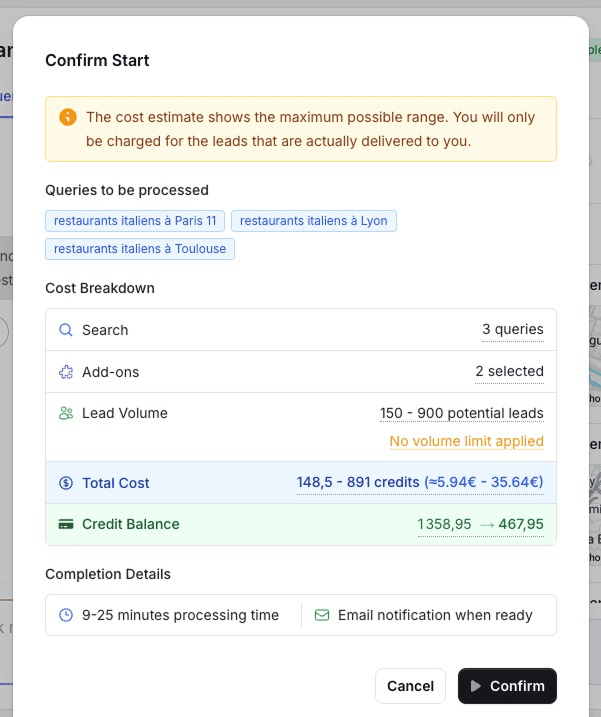
Feature Comparison: Beyond Basic Enrichment
Modern enrichment tools offer capabilities that extend beyond simple data addition. Here's how they compare on advanced features:
- Contact discovery depth: ZoomInfo offers the most extensive organizational charts, while AskMyBiz excels at finding direct contact information for decision-makers in smaller organizations.
- Integration capabilities: Clearbit provides the most developer-friendly API infrastructure, while Apollo and AskMyBiz offer stronger native CRM integrations.
- Data recency: AskMyBiz's AI-driven approach delivers the most current information, particularly for business details that change frequently.
- Lead scoring: Apollo and AskMyBiz offer automated qualification metrics to help prioritize prospects based on fit and intent signals.
- Compliance features: ZoomInfo and Clearbit provide more robust compliance tools for GDPR and CCPA, though all major platforms now offer basic compliance capabilities.
When selecting a tool, prioritize features that align with your specific use case rather than seeking the platform with the longest feature list.
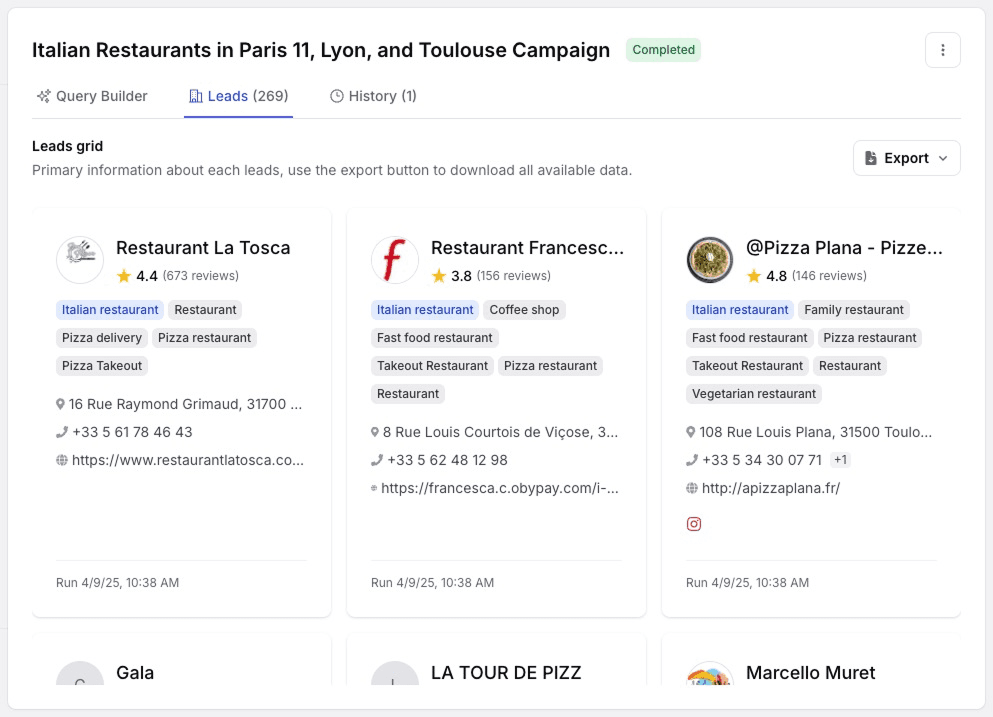
User Experience and Workflow Integration
The practical usability of enrichment tools varies significantly, particularly in how they fit into existing workflows:
- Low-code/no-code accessibility: AskMyBiz leads with its conversational AI interface that requires no technical expertise, making it accessible to non-technical users.
- CRM integration depth: ZoomInfo and Apollo offer the most extensive native Salesforce integrations, while AskMyBiz provides simpler but effective export options for various CRM systems.
- Bulk processing capabilities: Traditional platforms excel at processing large corporate databases, while newer tools like AskMyBiz are optimized for targeted campaign-based enrichment.
- Data visualization: Apollo and AskMyBiz offer superior visualization of enrichment results, helping users quickly understand and utilize the enhanced data.
Consider who in your organization will be using the enrichment tool and their technical proficiency when evaluating these aspects.
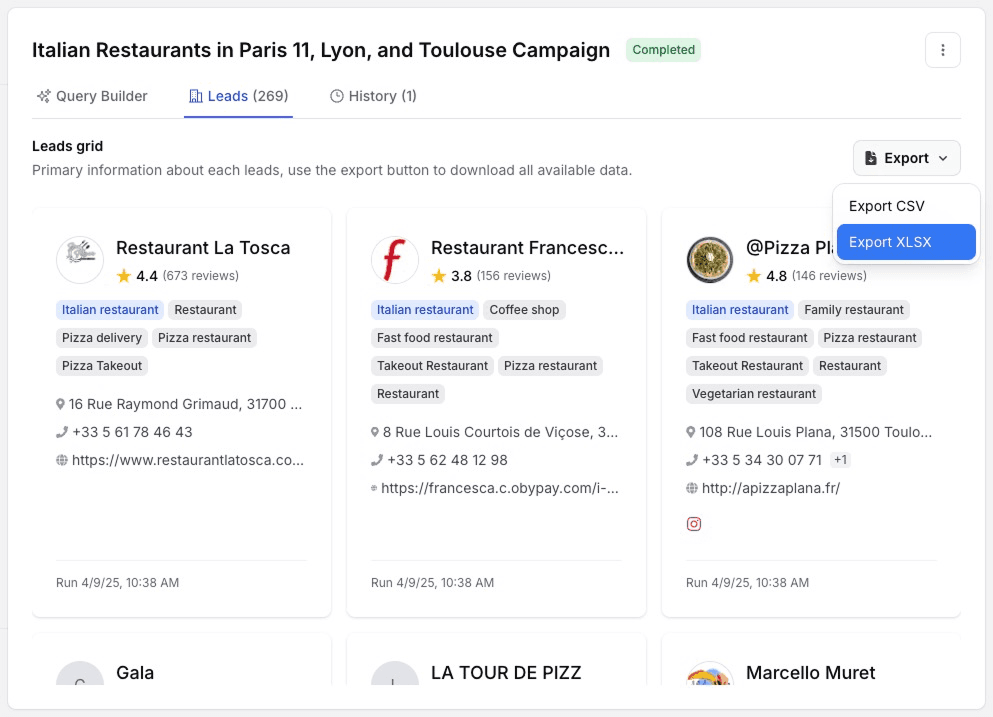
Specialized Use Cases and Tool Recommendations
Different business scenarios call for different enrichment approaches. Based on our analysis, here are our recommendations for specific use cases:
- Enterprise ABM campaigns: ZoomInfo or Clearbit offer the depth of information needed for account-based marketing at large enterprises.
- Local business outreach: AskMyBiz delivers superior results for agencies or businesses targeting local SMBs with its location-focused enrichment capabilities.
- Developer-centric integration: Clearbit's robust API and documentation make it ideal for technical teams building custom enrichment pipelines.
- Sales team enablement: Apollo.io combines enrichment with engagement tools that make it valuable for sales-driven organizations.
- Market research projects: AskMyBiz's flexible targeting and comprehensive export options make it well-suited for specific research initiatives.
Many organizations find that a combination of tools works best, using specialized platforms for specific use cases rather than trying to find a single solution for all enrichment needs.
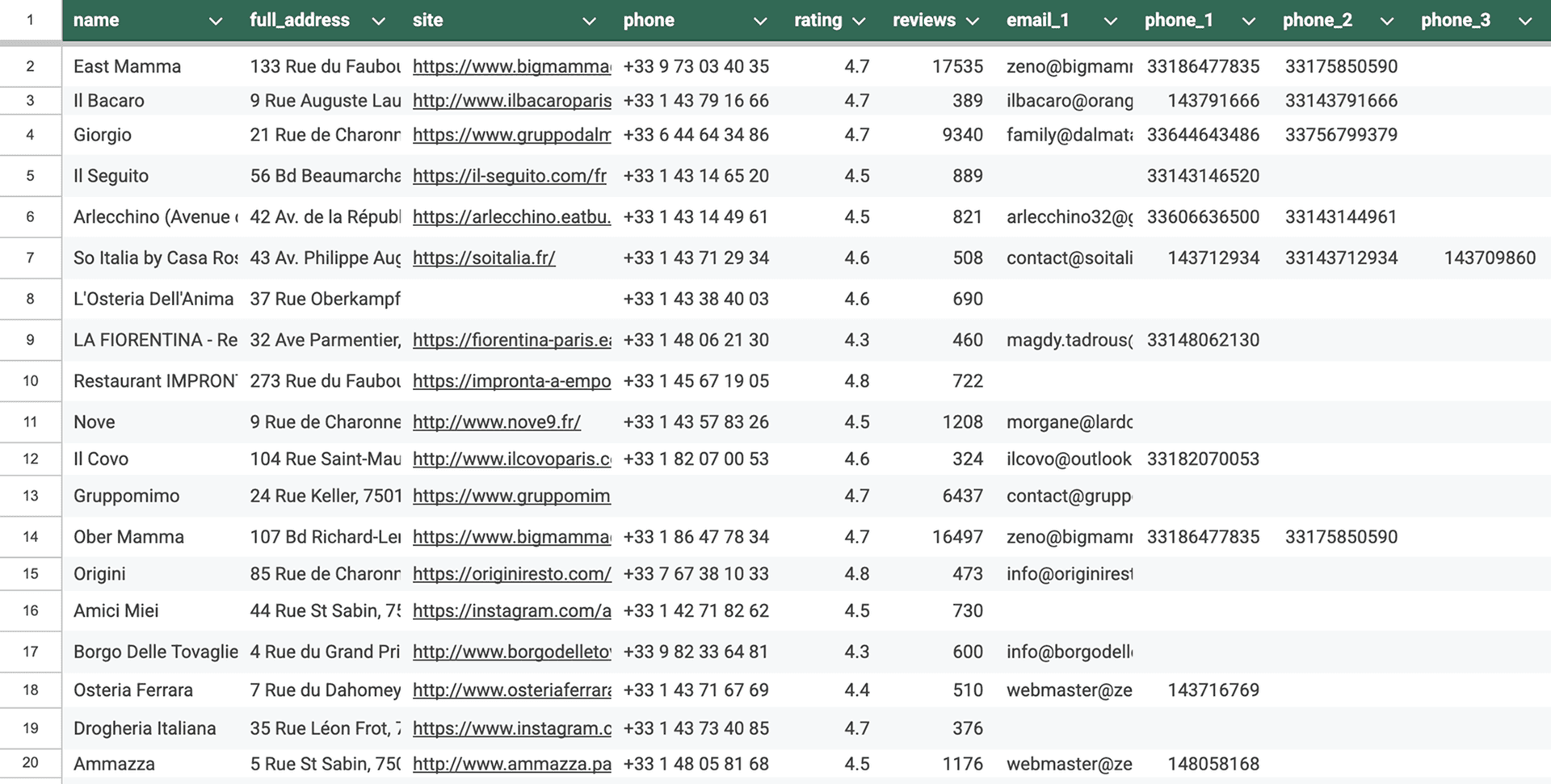
Implementation Case Study: Agency Optimization
To illustrate the practical differences between enrichment approaches, consider this real-world case study from a digital marketing agency:
The agency needed to build targeted outreach lists for clients in three industries: financial services, healthcare, and hospitality. Their initial approach involved using a traditional data provider with a substantial annual subscription, but they experienced challenges with data currency and coverage of smaller businesses.
After evaluating alternatives, they implemented a hybrid approach:
- Enterprise targets: Maintained limited seats on their traditional platform for large enterprise prospecting.
- SMB and local business campaigns: Added AskMyBiz for its superior coverage of smaller businesses and location-specific targeting.
- Email verification: Integrated Hunter.io specifically for email verification where highest deliverability was critical.
The results were compelling: a 40% reduction in overall data costs, 35% improvement in contact accuracy for SMB campaigns, and significantly faster list building for location-specific initiatives. Most importantly, the agency's outreach campaigns saw a 28% increase in response rates due to more accurate and relevant contact data.
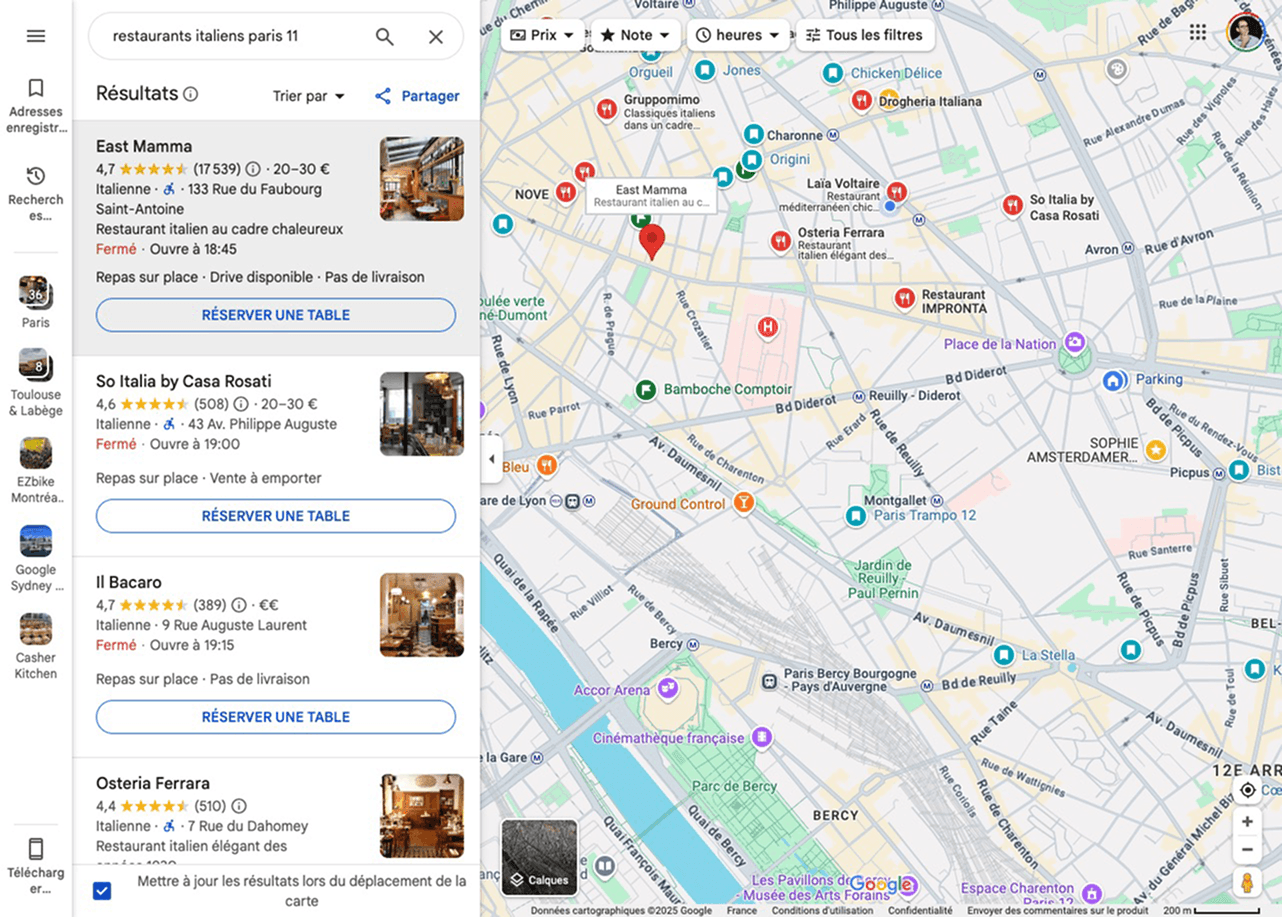
Future Trends in Business Enrichment
The business enrichment landscape continues to evolve rapidly. Key trends to watch include:
- AI-driven intent signals: Next-generation tools are beginning to incorporate predictive signals about purchase intent and company trajectories.
- Real-time enrichment: The shift toward dynamic data that updates automatically rather than static enrichment snapshots.
- Compliance automation: More sophisticated handling of regional data regulations and consent management.
- Verticalized enrichment: Industry-specific data sets and signals becoming more prominent in specialized platforms.
Organizations should consider not just current capabilities but also the innovation roadmap and adaptability of their chosen enrichment providers.
Conclusion: Selecting the Right Enrichment Strategy
There is no one-size-fits-all solution in the business enrichment space. Your optimal approach will depend on your:
- Target company profile: Enterprise-focused campaigns benefit from traditional providers, while SMB and local business targeting is better served by newer AI-powered platforms.
- Budget model: Consider whether your organization prefers predictable subscription costs or usage-based pricing aligned with specific campaigns.
- User technical proficiency: Developer-centric teams can leverage API-first platforms, while marketing and sales teams may benefit from more intuitive interfaces.
- Integration requirements: Evaluate how enrichment data needs to flow into your existing CRM, marketing automation, and sales enablement systems.
Many organizations are finding that a multi-tool approach delivers the best results, using specialized platforms for different segments of their prospecting and enrichment needs rather than forcing all use cases through a single solution.
The most successful enrichment strategies treat data quality as an ongoing initiative rather than a one-time purchase, continuously evaluating performance and adjusting approaches based on results across different target segments and use cases.